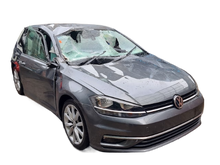
Future Forecast: The Automotive Workforce Evolution
Frequently Asked Questions
1. What skills will be in demand due to the rise of electric vehicles (EVs)?
2. How will automation and AI impact the automotive workforce?
3. What emphasis will sustainability have on future automotive jobs?
4. Why are soft skills becoming increasingly important in the automotive industry?
5. What factors contribute to global talent mobility within the automotive workforce?
The automotive industry is experiencing a seismic shift, driven by technological advancements, evolving consumer demands, and environmental concerns. As we plunge deeper into the 21st century, the workforce within this sector will undergo remarkable transformations. Those in the automotive field, whether they're manufacturers, mechanics, or entrepreneurs, need to stay ahead of the curve to remain relevant. This article explores key predictions for the automotive workforce, looking closely at how it will evolve in response to trends, technology, and management strategies.
The Rise of Electrification
As electric vehicles (EVs) gain traction, the demand for a skilled workforce proficient in EV technology will skyrocket. The transition from traditional fuel engines to electric systems calls for a different set of skills and knowledge.
Skill Sets in Demand
- Battery Technology: Understanding lithium-ion batteries and their management.
- Electric Drive Systems: Expertise in electric drive mechanisms and regenerative braking.
- Charging Infrastructure: Knowledge in installing and maintaining EV charging stations.
The automotive workforce will need to adapt, with educational institutions starting to offer programs designed for EV technology. Upskilling will be essential for existing employees to transition into this emerging field.
Integration of Automation and AI
With advancements in Artificial Intelligence (AI) and automation technologies, various aspects of the automotive industry are becoming increasingly automated. From production lines to customer service, AI is poised to reshape how the automotive workforce operates.
Impact on Workforce Roles
Workers may find their roles changing significantly, with some tasks becoming automated while new opportunities arise in areas such as:
- Data Analysis: Interpreting data generated by vehicles and production systems.
- AI Maintenance: Repairing and maintaining AI-driven machinery.
- Human-Computer Interaction: Enhancing user interfaces in vehicles.
This evolution will require a workforce that not only understands the technical aspects of AI but also possesses strong analytical skills to leverage the data effectively.
Emphasis on Sustainability
As environmental regulations tighten and consumer preference shifts towards sustainability, the automotive workforce will need to adopt eco-friendly practices and innovate towards sustainable solutions.
Green Jobs on the Rise
With the push towards greener technology, job roles will evolve to include:
- Sustainable Manufacturing: Focusing on reducing waste and optimizing energy usage in production.
- Material Science: Researching and developing more sustainable materials for vehicles.
- Recycling and Resale: Innovating in recycling programs and resale markets for used car parts.
The future of the automotive industry hinges not just on innovation but on sustainability. This focus will create entirely new job categories aimed at achieving environmental goals.
The Demand for Soft Skills
With the rapid change in technology and processes within the automotive sector, soft skills will become increasingly important. As jobs evolve, the ability to communicate effectively, collaborate in teams, and manage projects will be crucial.
What are the Essential Soft Skills?
- Effective Communication: Bridging the gap between technical staff and non-technical stakeholders.
- Adaptability: Staying agile and capable of maneuvering through constant changes in the industry.
- Problem-Solving: Crafting innovative solutions in fast-paced environments.
Automotive companies will seek candidates who possess not only technical know-how but also the interpersonal skills required to thrive in collaborative environments.
Changing Work Environment
The COVID-19 pandemic has ushered in a new work culture, elevating remote work and flexible schedules. The automotive workforce will see a blend of in-office and remote roles as manufacturers and service providers adapt to these changes.
Flexibility in Work Arrangements
Employees might enjoy:
- Remote Technical Support: Mechanics and specialists providing guidance via video calls.
- Hybrid Roles: Combining fieldwork with remote data analysis or customer service.
- Flexible Hours: Encouraging better work-life balance while meeting business demands.
As the work landscape changes, organizations need to strategize around creativity and employee satisfaction to maintain a motivated workforce.
Globalization and Talent Mobility
The automotive industry thrives on a global scale, with parts and expertise sourced from around the world. This aspect brings another dimension to the workforce predictions, emphasizing globalization and mobility.
Opportunities Across Borders
Workers will find greater mobility in their careers, working across countries for diverse experiences. Key factors include:
- Cross-Cultural Training: Learning to navigate and collaborate with diverse teams worldwide.
- Experience in Global Markets: Exposure to international automotive trends and technologies.
- Remote Collaboration Tools: Utilizing technology to facilitate cross-border teamwork.
Such global opportunities call for an open and adaptable mindset, as well as the ability to understand and embrace various work cultures.
Reskilling and Continuous Learning
The future workforce in the automotive sector will prioritize reskilling and continuous learning, given the rapid pace of technological advancement. Organizations will need to foster a culture where learning is encouraged and resources for skill development are readily available.
Pathways to Skills Enhancement
- Online Courses: Companies investing in platforms offering courses on new technologies.
- On-the-Job Training: Hands-on learning experiences to master new tools and methodologies.
- Industry Certifications: Encouraging employees to obtain certifications in emerging tech fields.
A commitment to lifelong learning will not only help workers adapt but also provide organizations with a competitive edge in the evolving market.
Building a Diverse Workforce
Diversity in the automotive workforce isn't just a goal; it’s a necessity. A variety of perspectives leads to greater innovation and problem-solving capabilities. The future workforce must prioritize inclusivity at every level.
The Benefits of Diversity
Companies that champion diverse workforces see numerous advantages:
- Enhanced Creativity: Different backgrounds lead to unique ideas and solutions.
- Broader Market Insight: Understanding diverse customer needs helps in product development and marketing.
- Stronger Reputation: An inclusive culture attracts top talent and fosters loyalty among employees.
As leadership roles evolve, embracing diversity will be fundamental to the automotive workforce's future success.
Conclusion: Embracing Tomorrow's Opportunities
The automotive workforce of the future holds endless potential for innovation, collaboration, and growth. By anticipating these changes and adapting skills and practices, individuals and companies alike can thrive in this dynamic landscape. Embracing electrification, automation, sustainability, and diversity will not only keep businesses relevant but also drive the industry into a bright and exciting future. Now is the time to invest in knowledge, skills, and a flexible mindset to seize the opportunities that lie ahead.





















